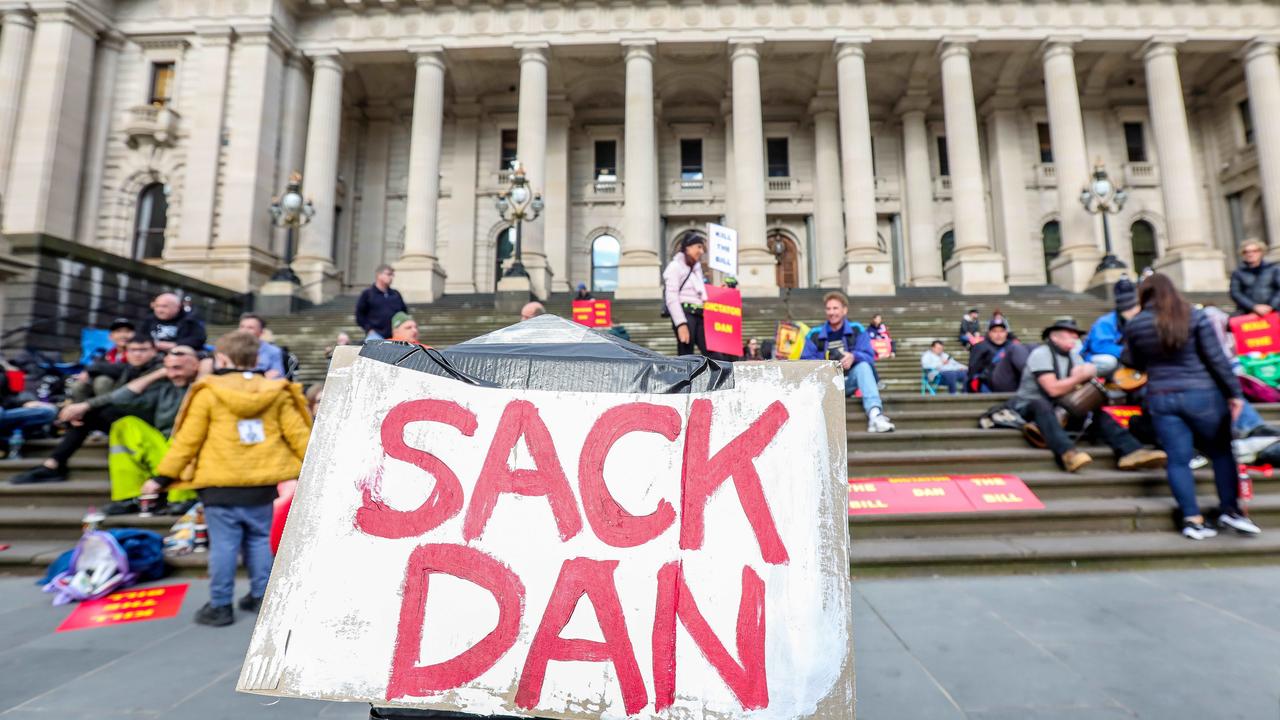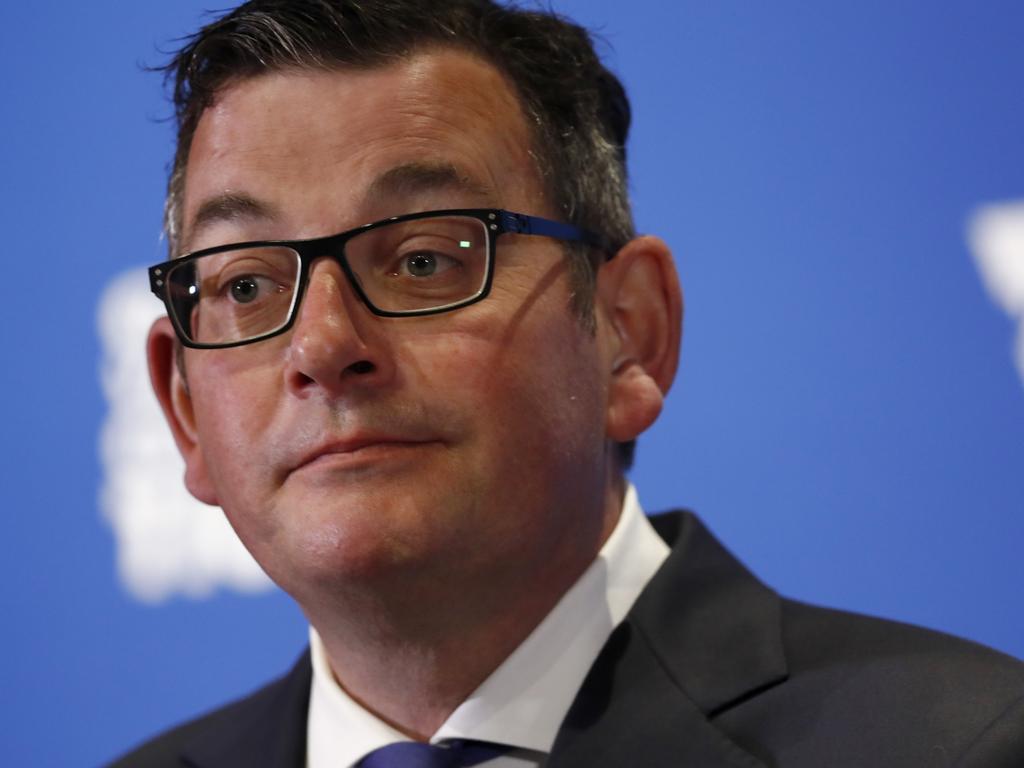Victorians no longer trust Daniel Andrews — and who could blame them?


You can bet that most mums and dads in Melbourne don’t have a solid grip on the legal intricacies of the complex legislation despite the efforts of lawyers and others to explain it.
Sometimes the devil is not in the detail, but is actually in the bigger picture.
What Andrews has proposed and the manner in which he has proposed it is precisely why so many people are sceptical of it. So let’s cut to the chase rather than dwell in the legal weeds.
The legislation that Andrews proposed, even in its modified form — a modification that was forced upon him by political opposition — gives him and his government more power to impose pandemic-related laws including locking down people, shutting businesses and schools and imposing large penalties on a population with scant independent oversight or powers of appeal.
Not all of the legislation is bad — it thankfully reduces the arbitrary powers of the chief health officer, a group that appeared to run much of Australia in 2021. But there are precious few checks and balances which might prevent a rogue or authoritarian-minded premier from imposing unduly harsh restrictions on people’s freedoms.

No-one is suggesting that Andrews is rogue and the behaviour of a small minority of anti-Andrews protesters outside the Victorian parliament in recent days has been disgraceful. But this pandemic has seen Andrews become uncomfortably comfortable with the use of harsher measures to respond to Covid-19 than was used by anyone else in Australia, perhaps the world.
Andrews was the premier who scored a global first by locking down Melbourne for longer than any other city on earth in response to the virus. These lockdowns were harsher and longer than in other parts of the country and at times included cruel or unnecessary laws such as closing children’s playgrounds, a nighttime curfew and severe restrictions on outdoor gatherings. Until the Delta outbreak made lockdowns all but moot, Andrews zealously pursued a zero-Covid policy that saw Melbourne and the entire state often locked down for a handful of cases.
During Melbourne’s sixth and final lockdown, once vaccination rates finally began to rise, Andrews effectively lost control as people began to openly flout his Covid regulations.
It was this realisation along with the higher vaccination rates and the fact that NSW was taking a more liberal approach to reopening that saw Andrews finally edge away from his previous hard line stance.

The premier eventually accepted the need to live with Covid and has opened the state up in response to the higher vaccination rates even while infection rates have remained high.
Andrews denies he has cultivated a leadership style that is prone to err on the side of authoritarianism as opposed to individual liberties and human rights. He denies that he played an overly heavy hand in his management of the pandemic. So why on earth would Andrews’ play to this perception of heavy-handedness by proposing new pandemic legislation which was so clearly weighted in favour of extending government power without appropriate oversight?
If Andrews wanted to persuade a lockdown weary people that his so-called authoritarian streak was a one-off response to the pandemic, then his call for greater permanent powers through this pandemic legislation was hardly the way to do it.
You can bet that while few Victorians will understand the ins and outs of this legislation, they have a good street sense about Andrews’ track record in balancing government power against freedoms. That is the simple reason why Andrews has struggled to win over Victorians on this issue.






The controversy over Dan Andrews’ proposed pandemic legislation boils down to the simple fact that there is a clear lack of trust in the Victorian premier.